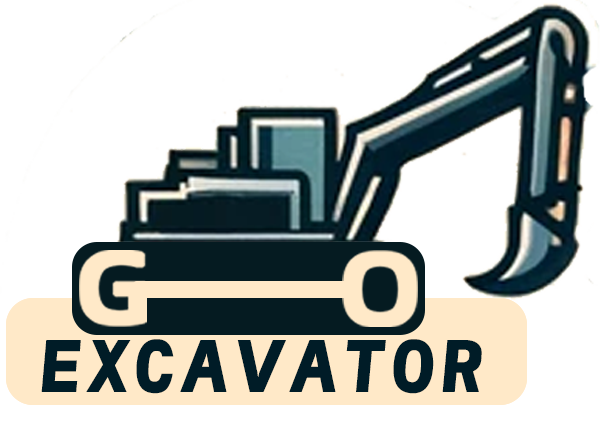
Excavators are vital pieces of machinery in construction and other heavy industries. However, like any mechanical equipment, they are subject to wear and tear. Proper maintenance and usage can significantly extend the lifespan of excavator parts, leading to increased efficiency and reduced downtime. In this blog, we will explore the best practices to ensure your excavator parts last as long as possible.
1. Regular Maintenance Checks
Regular maintenance checks are the cornerstone of extending the lifespan of excavator parts. By routinely inspecting your equipment, you can identify and address potential issues before they lead to significant problems.
Key Areas to Check:
- Hydraulic System: Regularly check for leaks, and ensure the hydraulic fluid levels are maintained.
- Engine: Inspect the engine for any signs of wear, and replace filters and fluids as per the manufacturer’s guidelines.
- Undercarriage: The undercarriage takes a lot of strain, especially in rough terrains. Regularly check for loose bolts, wear on tracks, and sprocket damage.
Tip: Create a maintenance schedule and stick to it. Regular checks will not only extend the life of your parts but will keep the machine running smoothly.
2. Use Quality Parts and Lubricants
The quality of parts and lubricants used in an excavator can have a direct impact on the longevity of the machine. Inferior parts may be cheaper upfront but can lead to frequent breakdowns and replacements, costing more in the long run.
Why Quality Matters:
- Durability: High-quality parts are designed to withstand harsh working conditions better.
- Compatibility: Using parts that are specifically designed for your excavator model ensures better fit and performance.
- Performance: Quality lubricants reduce friction and wear, protecting the moving parts of the machine.
Recommendation: Always opt for OEM (Original Equipment Manufacturer) parts and high-grade lubricants. These may come at a premium, but they are worth the investment.
3. Proper Operator Training
The way an excavator is operated has a significant impact on the lifespan of its parts. Operators who are well-trained in using the machinery can prevent unnecessary wear and tear.
Key Training Areas:
- Smooth Operation: Avoid sudden starts, stops, and changes in direction, which can strain the machinery.
- Load Management: Ensure the excavator is not overloaded, as this can cause stress on various components.
- Terrain Awareness: Operators should be trained to navigate different terrains carefully, avoiding sharp turns and slopes that can damage the undercarriage.
Advice: Regularly update operator training to include the latest best practices and techniques. This can include refresher courses for experienced operators.
4. Timely Replacement of Wear Parts
Certain parts of an excavator are designed to wear out over time, such as tracks, bucket teeth, and filters. Replacing these parts in a timely manner is crucial to prevent damage to other components.
When to Replace:
- Tracks: Replace when the tread depth is significantly worn or if cracks appear.
- Bucket Teeth: Replace when they become dull or misshapen, as this can affect digging efficiency.
- Filters: Replace as per the manufacturer’s recommended schedule to prevent clogging and engine strain.
Suggestion: Keep a log of wear part replacements and monitor the lifespan of these parts to anticipate when replacements will be needed.

5. Environmental Considerations
The environment in which the excavator operates can affect the lifespan of its parts. Extreme temperatures, abrasive materials, and corrosive environments can all accelerate wear and tear.
How to Adapt:
- Dusty Environments: Use filters designed for dusty conditions and clean them more frequently.
- Cold Climates: Use cold-weather lubricants and start the engine slowly to allow it to warm up.
- Corrosive Environments: Regularly wash the excavator to remove corrosive materials like salt or chemicals.
Practice: Adjust maintenance schedules and operating practices based on the specific environment in which the excavator is being used.
6. Implementing a Predictive Maintenance Program
Predictive maintenance uses data and sensors to monitor the condition of excavator parts and predict when they will need maintenance. This proactive approach can significantly extend the lifespan of parts by addressing issues before they become critical.
Benefits of Predictive Maintenance:
- Reduced Downtime: Maintenance can be scheduled before a part fails, avoiding unexpected breakdowns.
- Cost Savings: Preventative maintenance reduces the need for emergency repairs and extends the lifespan of parts.
- Increased Efficiency: Keeping the machine in optimal condition ensures it operates at peak performance.
Tip: Invest in a predictive maintenance system that integrates with your excavator’s monitoring systems. This can provide real-time data and alerts when maintenance is needed.
Extending the lifespan of excavator parts is crucial for maximizing the efficiency and cost-effectiveness of your operations. By implementing regular maintenance checks, using high-quality parts and lubricants, ensuring proper operator training, timely replacing wear parts, considering environmental factors, and adopting predictive maintenance strategies, you can significantly reduce downtime and prevent costly repairs.
A Comprehensive Guide to Buying a Excavator Second Hand
Purchasing a second-hand excavator can be a cost-effective solution for your construction or landscaping needs. However, buying used machinery comes with its own set of challenges and considerations. This comprehensive guide will walk you through [...]
Comprehensive Guide to Hyundai Mini Excavators: Features and Prices
Mini excavators have become indispensable tools in the construction and landscaping industries. Hyundai Construction Equipment, a global leader in heavy machinery, offers a range of mini excavators known for their reliability, efficiency, and advanced features. [...]
How to Extend the Service Life of Excavator Parts
Excavators are indispensable machines in the construction and mining industries. They perform heavy-duty tasks that demand robust components and meticulous maintenance. Extending the service life of excavator parts not only reduces operational costs but enhances [...]
Kymron Excavators: Innovative, Sustainable Construction Machinery
In the dynamic world of construction and heavy machinery, Kymron has emerged as a game-changer. Specializing in advanced excavator technology, Kymron is redefining industry standards with its commitment to innovation, efficiency, and sustainability. Company Overview [...]
Bulldozer vs. Wheeled Excavator: Which Machine is Better for Moving Soil?
Moving soil is a fundamental task in construction, landscaping, and earthmoving projects. Choosing the right machinery for the job can significantly impact efficiency, cost, and project timelines. Two of the most commonly used machines for [...]
Why Are Small Excavators Favored? A Comprehensive Guide
In the world of construction and landscaping, efficiency and versatility are key. Among the myriad of machinery available, small excavators have risen in popularity. But what makes them so favored? Introduction to Small Excavators Small [...]




